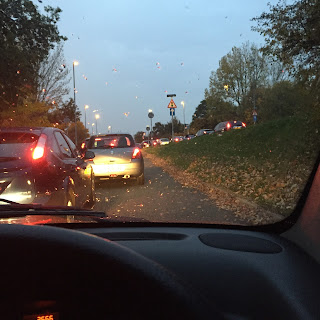I have been travelling this week, seeing family in the north of England.
This week's poem was written in Leeds and arose out of a conversation I had with my brother as we drove across the city. Have you ever returned to a place you once knew reasonably well but have not visited for some time and found a confusing new road system?
The last two lines need to be laid out properly and some of the enjambment [line endings] need work.
This is Brooke Sharkey singing Come Be Me. What a wonderful voice and those lyrics!
This week's poem was written in Leeds and arose out of a conversation I had with my brother as we drove across the city. Have you ever returned to a place you once knew reasonably well but have not visited for some time and found a confusing new road system?
you
have to stay away to appreciate the changes
Night
driving across Leeds.
We
pass through memories,
more
tangible than the houses that stood
where
this road now runs.
We
talk people, dates last seen, deaths,
divorces,
real lives lived, messy,
beautiful,
and every stop between.
I
watch my reflection
as
if it were a character in someone else's film.
Convinced
in that instant of other realities,
check
by jowl to this one,
then
realise that I must inhabit some of them,
as
do all these people we discuss,
the
missing, the messed up,
who
succeed in those other places.
The
darkness that fringes the amber street lights
hints
at this truth.
This poem is not finished. The last two lines need to be laid out properly and some of the enjambment [line endings] need work.














